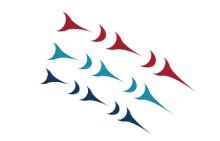Project 57 Week 8: səl̓ilw̓ətaʔɬ (Tsleil-Waututh Nation)

səl̓ilw̓ətaʔɬ is one of the many Nations referred to as Coast Salish, and they speak the hən̓q̓əmin̓əm̓ language. Their name means “People of the Inlet,” which tells of their long history in the area around Burrard Inlet. Like many Nations and communities, Tsleil-Waututh lived “by ‘seasonal round,’ a complex cycle of food gathering and spiritual and cultural activities.” (from Our Story) What this means is that səl̓ilw̓ətaʔɬ moved around their territory, going to where the resources were located. The Nation runs siʔáḿθɘt School, with the mission to “provide a culturally appropriate learning environment that nurtures the well-being of students, families and the community as a whole” (from About).
səl̓ilw̓ətaʔɬ’s territory “encompasses wilderness watersheds northwards to Mount Garibaldi, Coquitlam Lake in the east, and Howe Sound to the west.” (from About). In 2015, səl̓ilw̓ətaʔɬ “launched our independent assessment of the Trans Mountain pipeline and tanker expansion (TMX), grounded in Tsleil-Waututh’s unextinguished law and contemporary policy” (from 8 Years On, Tsleil-Waututh Nation Sacred Trust). In a post on the Sacred Trust website, it’s shared that the assessment continues to be a leading example of how a First Nation can apply its own law in dialogue with Canadian law, how a First Nation such as TWN expresses its jurisdiction, and how Indigenous-led assessments can present robust analyses that help us understand the impacts of a project beyond the limiting scope of traditional provincial or federal environmental assessments” (from 8 Years On, Tsleil-Waututh Nation Sacred Trust). In August 2023, a book written by TWN Sacred Trust’s manager, Rueben George, titled It Stops Here was published by Penguin Random House Canada. The book is “A personal account of one man’s confrontation with colonization that illuminates the philosophy and values of a First Nation on the front lines of the fight against an extractive industry, colonial government, and threats to the life-giving Salish Sea” (from Penguin Random House).
To learn more about səl̓ilw̓ətaʔɬ, check out these resources
- Burnaby Village Museum and Sharon Fortney, Indigenous history in Burnaby Resource Guide
- Tsleil-Waututh Nation video, People of the Inlet
The Decolonizing the Library Working Group invites everyone to learn alongside us with Project 57. This project is a response to the TRC Call to Action 57, which calls on "federal, provincial, territorial, and municipal governments to provide education to public servants on the history of Aboriginal peoples."
To learn more, visit Indigenous Initiatives.

